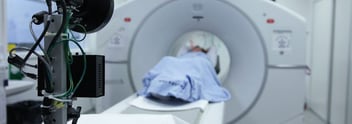How LDA Research Makes Sure That Everyone’s Included
As specialists in patient research, one area that LDA Research is acutely aware of is the need for research to be fully inclusive. Whether with patients or professionals, the onus is on us to identify and create ways for everyone to take part, because research should reflect insights from everyone within your target market, regardless of physical, visual or hearing ability. We also consider how to facilitate engagement from people who are neurodiverse and who have additional learning needs.
Traditional market research techniques - the online survey, telephone depth interview, and face-to-face interviews in a research facility - can all exclude significant parts of the population.
- Can we utilise technology so that participants can respond with video and audio responses?
- Is our approach suitable for people who are neurodiverse?
- How can we adapt video interviews and face-to-face interviews to enable full participation of respondents who are neurodiverse?
- Should we consult a disability champion about our research approach, such as a specialist in website accessibility?
- Are the face-to-face research facilities that we hire fully accessible?
At LDA Research, we use bespoke software to enable participants to take part using video, audio or writing, according to their preference. We also carry out regular training within our team and audit our approach.
We believe that taking active steps to be fully inclusive adds great value for our clients. We are specialists in patient research, including rare conditions, and this means that our reach within patient groups is as broad as possible.
This is illustrated in a recent project with participants who had limited or no use of their hands as a result of stroke and other neurological conditions. Some of these patients also had aphasia. We provided video, audio and written options for patients and worked with patient champions to ensure that everyone would be able to share their views in the way that was best for them. The project was a great success and delivered novel insights for our client, illustrating how fully inclusive research methodologies really can enhance the outcomes.



